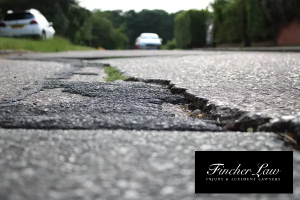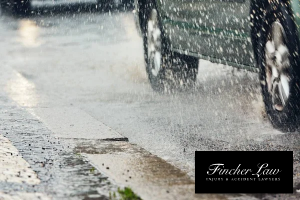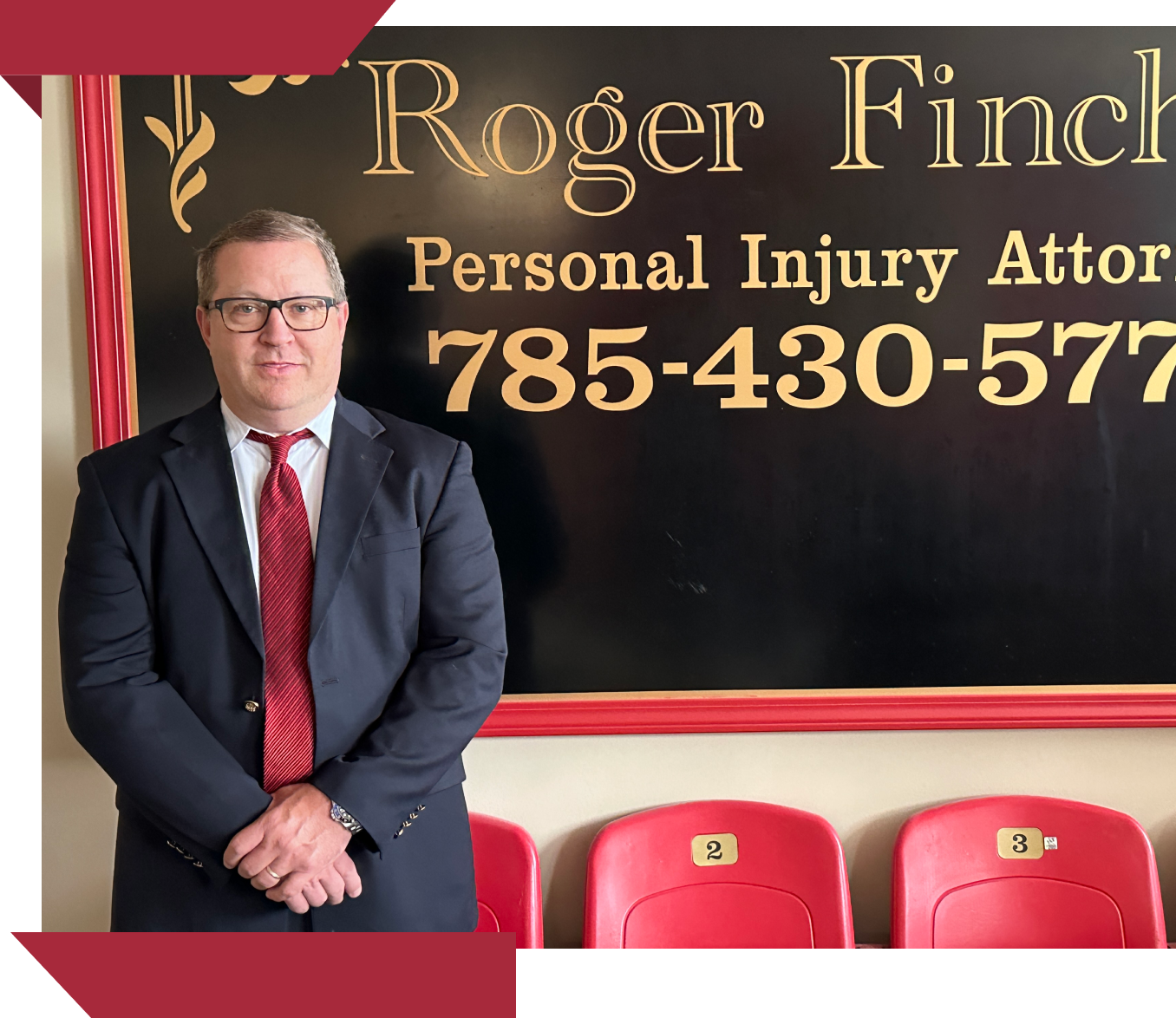
Kansas, known for its open roads and scenic views, has some risky roads where accidents happen often. Drivers in Kansas need to know about these dangerous roads. Awareness can help you stay safe while driving. Now, we will explore where these roads are and why they're so hazardous. At Fincher Law, we are proud to serve the Kansas City area and have dealt with our fair share of fatal crashes at the most dangerous intersections.
Many of us drive daily without thinking much about the risks. However, some roads in Kansas have a higher chance of accidents. Knowing these roads helps us be more careful.
Let's explore the most dangerous roads in Kansas that you should watch out for.
Some roads in St. Louis and Kansas City see more traffic accidents and car crashes than others. Highways with heavy traffic, like I-70 and I-35, often have more crashes. Rural roads can be just as dangerous due to high speeds and less visibility. These areas need extra caution when driving to avoid motor vehicle crashes. Drunk driving is also a severe issue in these areas.
Recent statistics show that certain Kansas roads are more accident-prone. For example, the stretch of I-70 through Topeka has a high rate of crashes. Another hotspot is the intersection of Kellogg and Rock Road in Wichita, known for frequent collisions.
The Kansas Department of Transportation reports that accidents are spread unevenly across the state. Some areas, like Johnson County, see more crashes annually. Understanding these patterns helps us identify where we need to be more careful. Reckless driving is an unnecessary risk, particularly on the most dangerous roads.

Educating drivers is critical to reducing accidents. By learning about road safety, drivers can make better decisions. Driver education programs focus on the dangers of speeding, distractions, and impaired driving. They help drivers understand how their actions can prevent accidents.
These programs also emphasize defensive driving. Defensive driving means staying aware of potential hazards and reacting safely. This approach is fundamental on Kansas' high-risk roads. With better education, we can lower the number of accidents.
To reduce accidents, we need to understand their causes. Many factors, like driver behavior and road conditions, play a role. By looking into these causes, we can find ways to make roads safer. Let's examine what leads to most accidents in Kansas.

Kansas weather can be unpredictable and affect road safety. Snow, ice, and rain make roads slippery and hard to drive, often leading to more accidents, especially if drivers are careless.
But it's not just winter weather that's a problem. In summer, thunderstorms and high winds can also make driving dangerous. Drivers need to adjust their driving to match the weather. Slowing down and keeping more distance from other cars can help prevent accidents.
The design of a road can influence how safe it is. Roads with clear signs and well-marked lanes are usually safer. But roads that need to be more precise or better designed can lead to accidents.
Traffic volume also matters. More cars mean more chances for mistakes and crashes. Roads that can't handle heavy traffic well are often where we see more accidents. Improving road design and managing traffic flow can make a big difference.

You have certain legal rights if you're in an accident in Kansas. You can seek compensation for damages and catastrophic injuries. Understanding these rights is crucial, especially if the car or truck accident was not your fault.
In Kansas, laws protect accident victims. These laws cover things like medical expenses and lost wages. If you're in an accident, knowing your rights is essential. A lawyer can help you understand what compensation you might be entitled to.
Road conditions can play a significant role in car and pedestrian accidents. If a road is poorly maintained, it can be partly to blame for a crash. In these cases, the responsibility might not be just on the drivers.
If lousy road conditions caused your accident, you might have a claim. This could be against the government or the agency responsible for the road. It's essential to document the conditions and seek legal advice.
Defensive driving on Kansas roads means always being ready for the unexpected. This style of driving requires constant vigilance and a proactive approach to safety. It involves understanding potential risks and knowing how to avoid them. For instance, anticipating the actions of other drivers and adjusting your driving accordingly can prevent many collisions.
Defensive driving is not just about following rules; it's about being more brilliant on the road. It includes keeping a safe distance from other vehicles, constantly scanning the road for hazards, and being prepared for sudden stops. This approach is critical in areas known for severe weather conditions or heavy traffic. By practicing defensive driving, you protect yourself and contribute to the overall safety of Kansas roads.
Law enforcement officers play a crucial role in making Kansas roads safer. They enforce traffic laws and educate the public about safe driving practices. Their presence in the streets acts as a deterrent to reckless or dangerous driving behaviors. Officers are often the first responders to accidents, providing aid, investigating the causes, and helping prevent future incidents.

Ultimately, knowing about Kansas's dangerous roads can help keep you safe. But if you're in an accident, Fincher Law is here to help. We are intimately familiar with the most dangerous roadways in the local area and can help you. We can pursue compensation for a severe injury on Kansas highways or negotiate with your insurance company for a favorable settlement.
At Fincher Law, we're committed to helping accident victims in Kansas. We offer expert legal advice and support. If you need help after a car accident, contact us to schedule a free consultation. Your safety and legal rights are our top priority. As always, we encourage responsible driving.
Schedule Your
Free Consultation



How Can We Help You?
How Can We
Help You?
Schedule a Free Consultation Now By Contacting
Our Team at (785) 430-5770 or by completing the form below
Schedule a Free Consultation Now
By Contacting Our Team
at (785) 430-5770
"*" indicates required fields